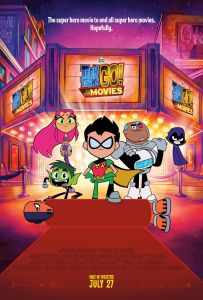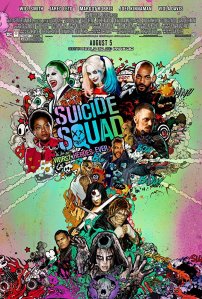It’s our 100th post! If you were to ask me what the bog standard Fnord post would be, I’d claim it’d be a queer-tinted anti-capitalist reading of a Sarah Jane Adventures episode. There’d be Doctor Who, kids programming, political leftism and queer theory all mashed into one – me and Dan in a nutshell. In this regard, having our 100th post be a 2,000 word defense of the hyper-macho Aquaman probably seems a bit off-brand. Then again, I think by this point another significant part of the blog is our inability to do any of it quite right. As such, let’s have this oddly deferred milestone stand as a cracked mirror celebration of both our successes and failures. It was either this or another review of A Dogs Purpose.

Written by Tom
Batman vs. Superman and Suicide Squad set up an aesthetic for the DCEU to follow. Both became critical punching bags. Justice League ran away from the aesthetic as fast as possible. Wonder Woman showed that the DCEU would be better off abandoning the aesthetic. Team Titans GO! to the Movies showed that the aesthetic would be better off abandoning the DCEU. The DC high-ups gave up and started rebuilding the franchise from the ground up. And stuck in the middle of this was Aquaman, the final movie of the DCEU as Zac Synder imagined it and the first released into a post-Synder DCEU landscape. Which, like Man of Steel, made it into the film whose main job was defining the DCEU going forwards, despite this never being the intention at any point during its production.
For what it’s worth, Aquaman does a much better job of the task than Man of Steel does. This is mostly because it tries to be fun while Man of Steel… doesn’t. Man of Steel is very much a film which belongs to the time when The Dark Knight was the best superhero movie ever made. This means that everything is very gritty, greyscale and serious. Of course, this is then filtered through the aesthetics of Zack Snyder, the man who took the pitch of “low-scale character study of Superman” and used it as an excuse to level cities and snap necks. This gave the film a critical edge and resulted in its weird self-destructive campness – there is the feeling that Synder doesn’t want to be directing a Superman film and is putting his effort into breaking it from the inside out – but it also resulted in a film which focussed its audience on its flaws, parading the shortcomings of its Superman around as the point of the exercise, its best and worst qualities becoming the exact same things. The fact that Man of Steel is a bunch of competing aesthetics revolving around a character no-one likes is both the point of the movie and the reason why few people think it’s good. No wonder a lot of people got turned off by it.
Aquaman and Wonder Woman represent two very different ways of trying to make this aesthetic likable. Wonder Woman‘s way is to try to make a film that’s actually good as opposed to making a very good film about how bad it is. The issue with this, as we’ve discussed, is that what most consider to be “good” by the standards of superhero movies is very limiting. So Aquaman picks the opposite tack: it throws away the question of quality entirety in favor of being fun.
(more…)
 Written by Tom
Written by Tom Written by Tom
Written by Tom